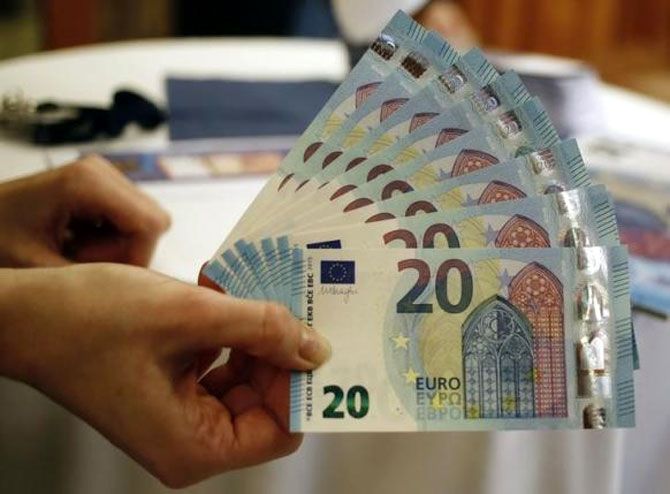Under the Commission proposal, Greece would get the whole $8 billion in one go

The European Commission is proposing to give a euro 7 billion ($7.7 billion) bridge loan to Greece to cover the country's financing needs in July using the European Financial Stability Mechanism (EFSM), according to document from the EU executive.
The proposal, seen by Reuters, says the bridge loan would have a maximum maturity of 3 months and would be repaid to the EFSM from money that Greece is to get from the euro zone bailout fund, the European Stability Mechanism (ESM) on the conclusion of negotiations on the next, euro 86 billion three-year bailout.
The proposal to use the EFSM for the bridge loan is controversial because Britain and the Czech Republic are strongly opposed to it.
Unlike the ESM, which is a euro zone fund, the EFSM is an EU-wide fund, backed by the EU budget and therefore disbursements from it need the approval of all of the EU's 28 governments, rather than just the 19 of the euro zone.
But decisions in the EFSM are taken by qualified majority voting, which means that if 16 countries representing 65 percent of the EU's population support a disbursement, its opponents like Britain or the Czech Republic can be outvoted.
Under the Commission proposal, Greece would get the whole 7 billion in one go, allowing it to redeem its bonds held by the European Central Bank on Monday and pay its overdue obligations to the International Monetary Fund.
The Commission proposal, which is to be put to EU finance ministers for approval later on Wednesday, makes clear however, that Greece can only get the bridge loan if it passes a set of reforms in its parliament already on Wednesday.
It also has to formally start next bailout negotiations with the ESM -- a process that could start on Thursday or Friday.
The reforms needed for the bridge loan are raising the value-added tax revenues by 1 percent of GDP annually, reforming the pension system and strengthening the independence of the Greek statistics office.
To make sure the 7 billion can be raised quickly, the Commission, which would be borrowing the money, would be allowed to do it via the private placement of notes.












 © 2025
© 2025